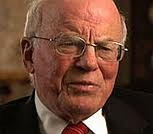Stealing our jobs
Check out this opinion piece printed in the June 9 edition of The New York Times where Richard Viguerie sounds like he is worried about prisons being harmful to prisoners and their families. His real motive is to turn the public against the prisons and jails run by our states and counties. Viguerie and his crowd want to take control of the criminal justice system including corrections away from the government. They want to privatize the jobs, eliminate collective bargaining for corrections officers, and reduce pensions, pay and benefits. They have the same goal for every part of the public sector including education, law enforcement and even the military.
A little background on Viguerie: he tried to obtain the presidential nomination of George Wallace’s racist American Independent Party back in the 1970’s, he was the major fundraiser for the Reverend Sun Myung Moon’s Korean Cultural Freedom Foundation, and was heavily involved in a scandal known as “Koreagate.” There’s more. Check it out on Wikipedia.
Here’s the Op-Ed piece.
A Conservative Case for Prison Reform
By RICHARD A. VIGUERIE
The New York Times: June 9, 2013
MANASSAS, Va. — CONSERVATIVES should recognize that the entire criminal justice system is another government spending program fraught with the issues that plague all government programs. Criminal justice should be subject to the same level of skepticism and scrutiny that we apply to any other government program.
But it’s not just the excessive and unwise spending that offends conservative values. Prisons, for example, are harmful to prisoners and their families. Reform is therefore also an issue of compassion. The current system often turns out prisoners who are more harmful to society than when they went in, so prison and re-entry reform are issues of public safety as well.
These three principles — public safety, compassion and controlled government spending — lie at the core of conservative philosophy. Politically speaking, conservatives will have more credibility than liberals in addressing prison reform.
The United States now has 5 percent of the world’s population, yet 25 percent of its prisoners. Nearly one in every 33 American adults is in some form of correctional control. When Ronald Reagan was president, the total correctional control rate — everyone in prison or jail or on probation or parole — was less than half that: 1 in every 77 adults.
The prison system now costs states more than $50 billion a year, up from about $9 billion in 1985. It’s the second-fastest growing area of state budgets, trailing only Medicaid. Conservatives should be leading the way by asking tough questions about the expansion in prison spending over the past three decades.
Increased spending has not improved effectiveness. More than 40 percent of ex-convicts return to prison within three years of release; in some states, recidivism rates are closer to 60 percent.
Too many offenders leave prisons unprepared to re-enter society. They don’t get and keep jobs. The solution lies not only inside prisons but also with more effective community supervision systems using new technologies, drug tests and counseling programs. We should also require ex-convicts to either hold a job or perform community service. This approach works to turn offenders from tax burdens into taxpayers who can pay restitution to their victims and are capable of contributing child support.
The good news is that a national conservative movement to reform our criminal justice system, including volunteer pastoral counseling for prisoners and encouraging frequent contacts with family members, has been growing.
This Right on Crime campaign supports constitutionally limited government, individual liberty, personal responsibility and free enterprise. Conservatives known for being tough on crime should now be equally tough on failed, too-expensive criminal programs. They should demand more cost-effective approaches that enhance public safety and the well-being of all Americans.
Some prominent national Republican leaders who have joined this effort include Jeb Bush, Newt Gingrich, the anti-tax activist Grover Norquist, the National Rifle Association leader David Keene and the former attorney general Edwin Meese III.
Right on Crime exemplifies the big-picture conservative approach to this issue. It focuses on community-based programs rather than excessive mandatory minimum sentencing policies and prison expansion. Using free-market and Christian principles, conservatives have an opportunity to put their beliefs into practice as an alternative to government-knows-best programs that are failing prisoners and the society into which they are released.
These principles work. In the past several years, there has been a dramatic shift on crime and punishment policy across the country. It really started in Texas in 2007. The state said no to building eight more prisons and began to shift nonviolent offenders from state prison into alternatives, by strengthening probation and parole supervision and treatment. Texas was able to avert nearly $2 billion in projected corrections spending increases, and its crime rate is declining. At the same time, the state’s parole failures have dropped by 39 percent.
Since then more than a dozen states have made significant changes to their sentencing and corrections laws, including Georgia, South Carolina, Vermont, New Hampshire and Ohio. Much of the focus has been on shortening or even eliminating prison time for the lowest-risk, nonviolent offenders and reinvesting the savings in more effective options.
With strong leadership from conservatives, South Dakota lawmakers passed a reform package in January that is expected to reduce costs by holding nonviolent offenders accountable through parole, probation, drug courts and other cost-effective programs.
By confronting this issue head on, conservatives are showing that our principles lead to practical solutions that make government less costly and more effective. We need to do more of that. Conservatives can show the way by impressing on more of our allies and political leaders that criminal justice reform is part of a conservative agenda.
Richard A. Viguerie is the chairman of ConservativeHQ.com and the author of “Conservatives Betrayed: How George W. Bush and Other Big Government Republicans Hijacked the Conservative Cause.”















